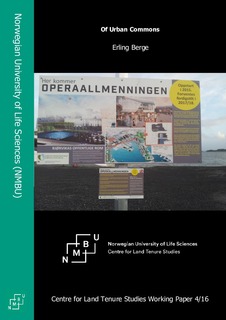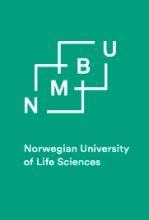Resource information
The paper is part of a joint presentation with Marius Grønning at the 5th International and Interdisciplinary Symposium of the European Academy of Land Use and Development (EALD) held in Oslo 3-5 September 2015.
Last summer visitors to the Oslo opera house were met with the following announcement: “Here comes the “Opera Commons” explaining: “Operaallmenningen”, the Opera Commons, “will be a multi-functional meeting place for cultural events, recreational activities and people passing through.” The choice of “allmenning” (commons) to designate a place that is available to citizens of Oslo and their visitors as a “meeting place for cultural events” and “recreational activities” may be part of an international trend idolizing “the commons”. This trend one may observe both in academia and in some political circles. The trend deserves some reflection in its own right. Why is there currently a need for this term? The established theory of the commons does not have much to say about urban reality in its own right. However, the theory is well developed to understand some problems of collective action as these appear in urban development. The link between land tenure and structure of land use decisions is well known. We shall use the theory of the commons to comment on the link between tenure and form of commons that may appear and the problems of governing urban commons in various forms.


